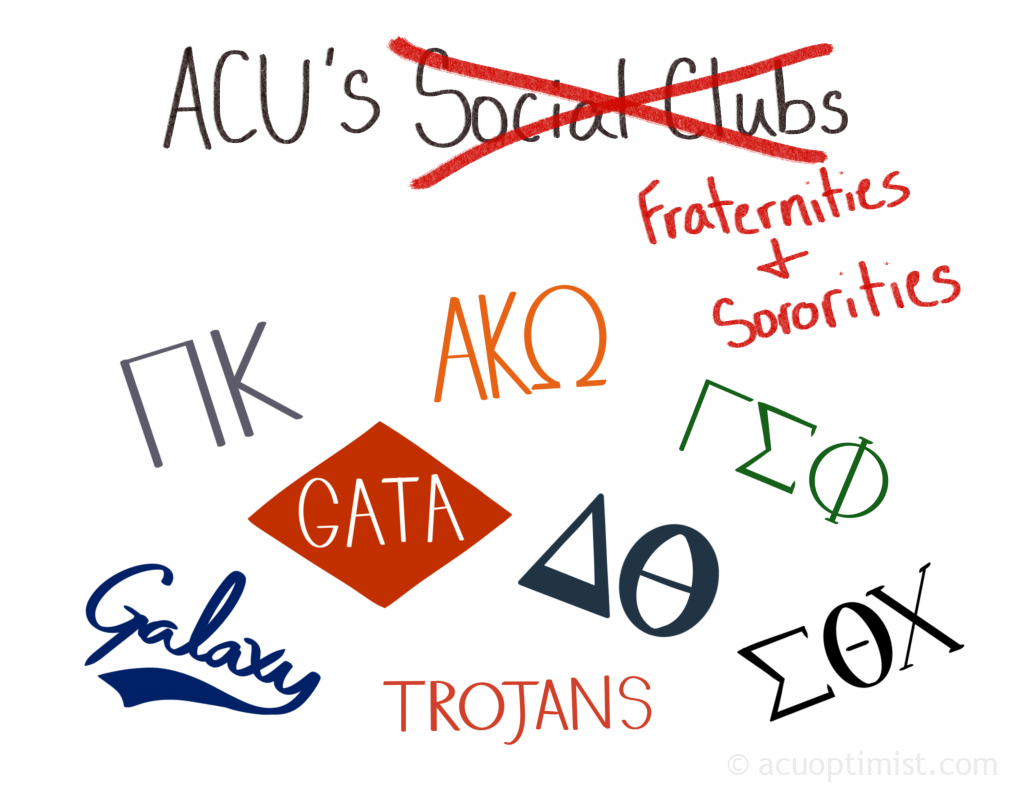ACU has a long history of social clubs and student’s involvement in them. In fact, the level of student involvement in social clubs makes them integral to the student experience.
You can’t walk across campus without seeing something sponsored by a sorority or fraternity, whether it’s the GATA fountain, Kojie Park or the incoming Siggie Pavilion.
With this increasing student involvement, it is important that we look at the reason for changing the name from social clubs to sororities and fraternities. While the university has traditionally separated itself from the stereotypes of Greek life due to its detachment from Christian values. The lack of affiliation with national chapters ensures that ACU’s Greek life adheres to its Christian standards. Since the name itself is the only thing about social clubs that is changing, it is clear that the change is more about image than structure.
“Students that are not familiar with ACU and it’s traditions, may not recognize what a ‘social club’ means, but they would recognize the terminology of Fraternity/Sorority,” Robin McPherson, senior coordinator of fraternities and sororities said.
As the university grows and changes to accomodate a larger and more diverse student body, it is important that we make student life feel welcoming to people of all backgrounds. For those with no prior knowledge or relation to ACU, they may not know what social clubs are or what they do.
The change to local sororities and fraternities brings in students who are seeking the community of Greek life without compromising the values that ACU instills in its students.
“[The change] was a marketing tool to help students that are making decisions about where to attend college, the knowledge that ACU also offers the opportunity to be a part of Greek life, as other universities do,” McPherson said.
As ACU becomes a more prominent university, we should acknowledge these changes that increase involvement and promote diversity among our student body. The more the university succeeds, the more we succeed.

